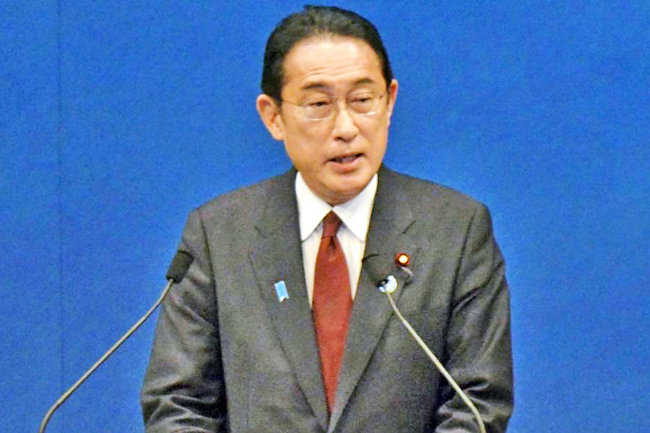James Kon
Brunei Darussalam participated and shared its endeavour on tackling water issues as well as learning through shared information and experiences with other partner states at the 4th Asia-Pacific Water Summit (APWS) held in Kumamoto City, Kumamoto, Japan recently.
Representing the Government of His Majesty Sultan Haji Hassanal Bolkiah Mu’izzaddin Waddaulah ibni Al-Marhum Sultan Haji Omar ‘Ali Saifuddien Sa’adul Khairi Waddien, Sultan and Yang Di-Pertuan of Brunei Darussalam was Minister of Development Dato Seri Setia Ir Awang Haji Suhaimi bin Haji Gafar.
The Brunei delegation also included Ambassador of Brunei Darussalam to Japan Haji Shahbudin bin Haji Musa; Permanent Secretary (Planning, Land Use and Environment) at the Ministry of Development (MoD) Dr Nor Imtihan binti Haji Abdul Razak, and senior officials from the MoD.
The summit commenced on Saturday with an opening ceremony and summit-level meeting, officiated by Japanese Emperor Naruhito.
In his address, Emperor Naruhito expressed his concerns and vision towards a resilient generation to come, through actions and drive that the region can contribute towards water issues. The emperor also encouraged mutual learning and sharing experiences regardless of age or gender for the sustainability of future generations, and called on member states to support youth empowerment.
Meanwhile, Japanese Prime Minister Fumio Kishida delivered welcoming remarks, followed by United Nations (UN) Secretary-General Antonio Guterres, who addressed the need to act and implement solutions to water issues.


The secretary-general emphasised UN’s support and looked forward to the region’s concerted effort towards global water actions.
The UN eagerly anticipates, he said, the outcome of different levels of societies, including youth, coordinating and acting to achieve social development goals.
The highlight of the Opening Ceremony and summit-level meeting was the adoption of the Kumamoto Declaration which underlines member states’ commitment to transforming into quality-oriented societies that are resilient, sustainable and inclusive by leveraging improved governance, shrinking wealth gaps, and appeal to the science and technology community.
The substance of the summit comprised multiple sessions – parallel thematic, special island, and integrated.
There were also exhibitions and symposiums featuring presentations, discussions and information related to water issues and initiatives across the globe.
Adhering to the summit theme‘s ‘Water for Sustainable Development – Best Practices and the Next Generation’, the integrated sessions focussed on finance, governance, and science and technology, particularly international and regional trends following the 3rd Asia-Pacific Water Summit in Yangon, Myanmar in 2017.
There were nine themed sessions which were open to participation from all delegations.
The sessions engaged participants in a series of presentations on various topics including ‘Water and Disaster/Climate Change’; ‘Water Supply’; ‘Water and the Environment from Source to Sea’; ‘Water and Poverty/Gender’; ‘Water and Sanitation/Wastewater Management’; ‘Youth Leadership and Innovation by Youth’; ‘Water and Food’; ‘Water, Culture and Peace’; and ‘Sound Water Cycle including Groundwater’.
The 4th Asia-Pacific Water Summit concluded with a closing ceremony on Sunday, including a summary of the outcomes of the sessions that revolved around four main achievements: ‘Towards a Sustainable Society’; ‘Towards a Resilient Society’; ‘Towards an Inclusive Society’; and ‘Towards the UN 2023 Water Conference and Beyond’.
The chairmanship handover ceremony followed, with a pledge and appeal of the Youth on Water Action, exhibiting the region commitment to addressing youth participation as future ambassadors a sustainable, resilient and inclusive new era, particularly through actions on water management.
Japanese Minister of Land, Infrastructure, Transport and Tourism Tetsuo Saito in his closing remarks, addressed the adoption of the Kumamoto Declaration and agreement to take action on the three key focus areas of governance, finance, and science and technology.
He also reiterated and called on member states and partners to participate in the 2nd International High-Level Conference on the International Decade for Action – ‘Water for Sustainable Development’ to be held in Dushanbe, Tajikistan from June 6-9 and the 2023 UN Water Conference in New York, United States from March 22-24, 2023.



